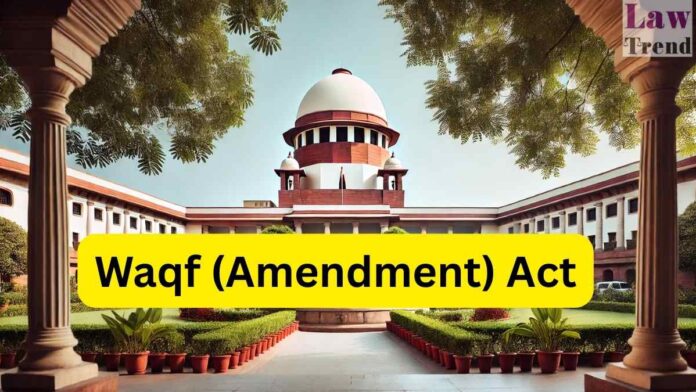The Centre defended the Waqf (Amendment) Act, 2025, before the Supreme Court on Friday, stating that the act respects the essential religious practices of Muslims by not interfering with matters of faith and worship. In a preliminary affidavit submitted to the apex court, the government emphasized that the amendments introduced aim to enhance transparency, accountability, social welfare, and inclusive governance, aligning with constitutional values and public interest.
The Centre’s affidavit argued for the dismissal of challenges against the validity of the Act, describing the legislation as “constitutionally valid” and a significant step towards formalizing, harmonizing, and modernizing the existing waqf management system. The 2025 Act was crafted with the objective of updating the management of waqf properties in India through more transparent, efficient, and inclusive measures.
According to the affidavit, “The Act respects the essential religious practices of the Muslim community by leaving matters of faith and worship untouched, while legitimately regulating the secular, administrative aspects of waqf management as authorized by the Constitution.”
The government clarified that the reforms are solely directed at the secular and administrative components of waqf institutions, such as property management, record-keeping, and governance structures. These measures do not impinge upon any essential religious practices or tenets of the Islamic faith.
Articles 25 and 26 of the Constitution provide a balance between an individual’s or denomination’s right to religious freedom and the state’s authority to enact measures for social welfare and regulation. “The reforms introduced are directed at the secular and administrative aspects, which may be connected with religious beliefs but are not beliefs themselves,” the affidavit stated.
The law meticulously avoids touching on how to create a waqf, for what purpose it is created, and how it functions internally, which are considered internal matters of the community. Furthermore, the government labeled the creation, management, and operation of endowments as “purely secular exercises,” noting that not every activity or custom vaguely related to religion is afforded constitutional protection—only those practices fundamental to the religion are protected under Articles 25 and 26.
The affidavit detailed the management of a vast array of waqf properties across India, involving significant secular activities such as maintaining accurate records and ensuring that income is used for intended charitable purposes. It highlighted the diverse types of waqfs, including those for orphans, healthcare facilities, educational institutions, and support for the needy, along with emerging forms like cash waqfs, corporate waqfs, and waqf sukuk (Islamic bonds).
Parliament’s role in enacting this amendment is portrayed as an exercise of constitutionally sanctioned power to intervene in the secular, economic, and administrative activities associated with a religious endowment, aiming for social welfare, reform, and public order. “Therefore, the Act, by confining itself to non-essential practices, steers clear of infringing the religious freedoms guaranteed by the Constitution,” the ministry concluded.




